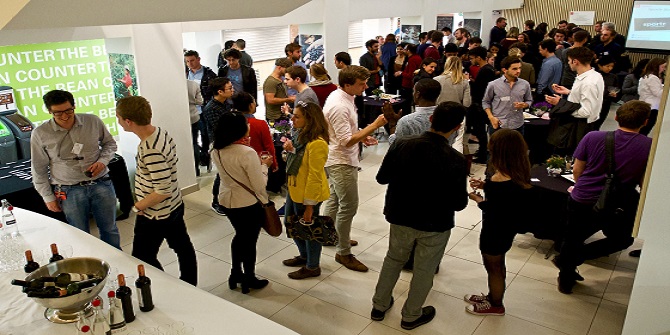It’s tough making post doc applications. The competition is stiff. Is the effort worth it?
Last week at the LSE Careers Seminar we heard how to make successful applications from two different points of view. Perhaps, you could be successful too! Learn from our speakers:
- Dr Joseph Downing, Marie-Curie Fellow at Aix-Marseille Université and PhD 2014, LSE European Institute
- Professor Linda Mulcahy, Director of PhD Academy and ESRC DTC, Professor of Law, LSE and experienced reviewer of post doc funding applications.
The key points made in the seminar are summarized below and the slides are online here. The slides include: tips from our speakers; examples of funded researchers at LSE; details of major post doc funders; strategy and tactics on applications; sources of help.
Getting started
You can apply for:
- Your own funding from a Research Council (or similar body) to conduct you own research plan agreed with that body, while you are hosted at a Higher Education Institution; or
- A post advertised in a department that already has funding and which will employ you on a fixed term contract to conduct research that you agree directly with the department or perhaps:
- More complicated to manage because posts are advertised at different times of the year and deadlines and closing dates for Research Councils are fixed. But possible.
Use sources
- ESRC funded post doc positions at LSE advertised now
- ac.uk for advertised research posts
- Advice from LSE Research Division for funding calls
Start early to build contacts with future collaborators / mentors and consider where you’d like to publish your research outputs.
Application tips
- start early: get to know the funding bodies, their deadlines and particular conditions
- re-work the proposal for different applications, tailoring very carefully and according to each funder’s very specific requirements
- you might well be rejected, so prepare for feeling down and developing your resilience
- the feedback you receive might not always be helpful and awards seem arbitrary but sometimes the feedback is very good and you can use it to improve future applications
- other people might be willing to share their applications and feedback. You can learn lots from this, including the preferred style of each funder – just ask! (It’s ok to do that.)
- get help: mentors in your department and elsewhere, your peers, LSE Research Division and LSE Careers provide excellent support, make good use of them all
Writing your proposal
As a reviewer of proposals, Linda encourages you to think of the reviewer’s position and to make it easy for the specialist reader to promote your application with her colleagues from other disciplines on the committee. You can make her job easier by showing you understand the position of your work in the wider field and its relevance to wider topics. Imagine a reader responding with “So what?!” and argue more strongly why your proposal deserves funding.
Waiting for success
Joseph recounted the modern day saga of his quest for success and was very honest about the difficulties involved in applying, particularly the long time frame and he described ways to keep yourself going during the long process. A number of part-time teaching roles in different departments and with LSE100 helped. Also, some research assistant work and work outside the university too. Having one (or two) good publications helps as it shows you can publish in high quality journals (this is more important than quantity) and having some teaching experience was also valued by funders in Joseph’s experience.
LSE Careers can help
We can help with information about post doc research fellowships, Junior Research Fellowships, and research statements and proposals. Use the jobs and opportunities listed on CareerHub for short-term roles and jobs.ac.uk too. An email to conveners of courses you could teach might generate some work.
Use one-to-one careers appointments to talk through your approach, support your motivation, and practice interview technique with Catherine Reynolds, LSE Careers Consultant for PhD students. We regularly run careers events (including PhD and research staff specific ones in the PhD Academy) and through these you can learn from the experience of others in a structured way.
Finally, good luck!





